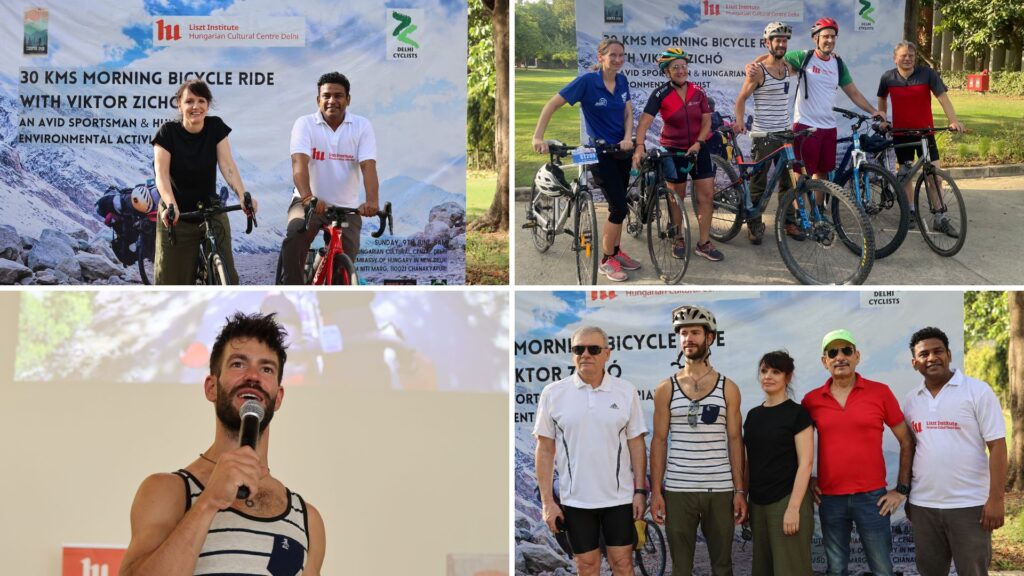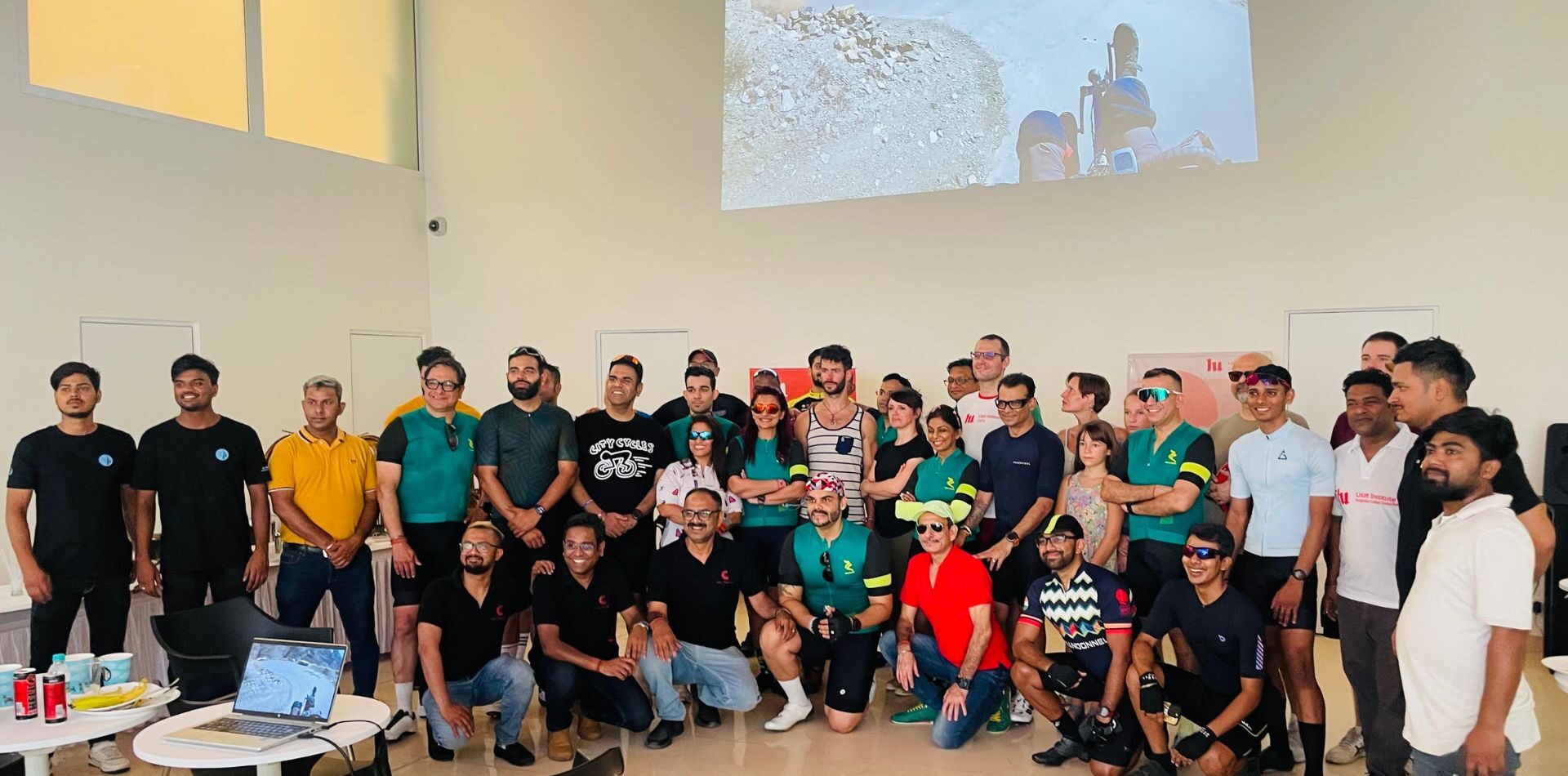By – Prakarsh Kastwar
This special event, a role of the Liszt Institute Delhi’s CSOMA240 project, together culture and sport: Alexander Csoma de Körös, a Hungarian scholar who left Hungary in 1819 to eventually arrive in India, where he is still regarded as the founder of modern Tibetan studies and the composer of the first Tibetan-English dictionary. 200 years later, in 2019, Viktor Zichó cycled the same route as the renowned scholar. After 11 months, 13,000 kilometers, and numerous adventures, he reached in Darjeeling, the hometown of Alexander Csoma de Körös, to set the walnuts and the Hungarian tricolor on the gravestone in the Old Cemetery.


The “Morning Ride with Viktor Zichó, an avid Hungarian extreme sportsman and environmental activist” was an exclusive event organized by the CSOMA240 project in celebration of the 240th birth anniversary of Alexander Csoma de Körös, a student who not only excelled in science but also completed a massive physical challenge by reaching India in the 1820s.
The Delhi Cyclists and guests, including HE István Szabó, Ambassador of Hungary to India, completed a 25 km morning bicycle ride in South Delhi, followed by refreshments and a workshop with the man of the day, Viktor Zichó.


It was beautiful attending this event and participate in the ride. Let all of us pledge to spread awareness of this Hungarian scholar who did such impactful work on Buddhist and Tibetan studies